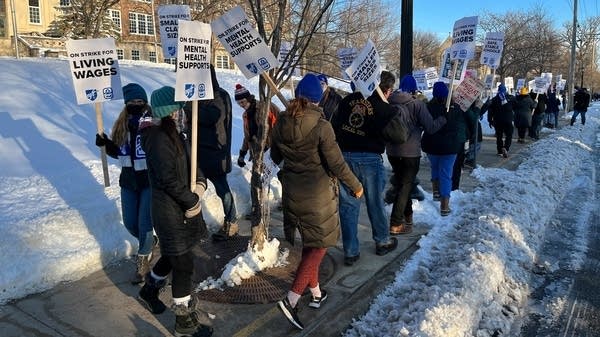Minneapolis teachers begin strike, St. Paul educators and district reach tentative agreement

Teachers walked the picket line on Nicollet Avenue in front of Page Middle School in Minneapolis as a strike began Tuesday.
Tim Nelson | MPR News
Go Deeper.
Create an account or log in to save stories.
Like this?
Thanks for liking this story! We have added it to a list of your favorite stories.


